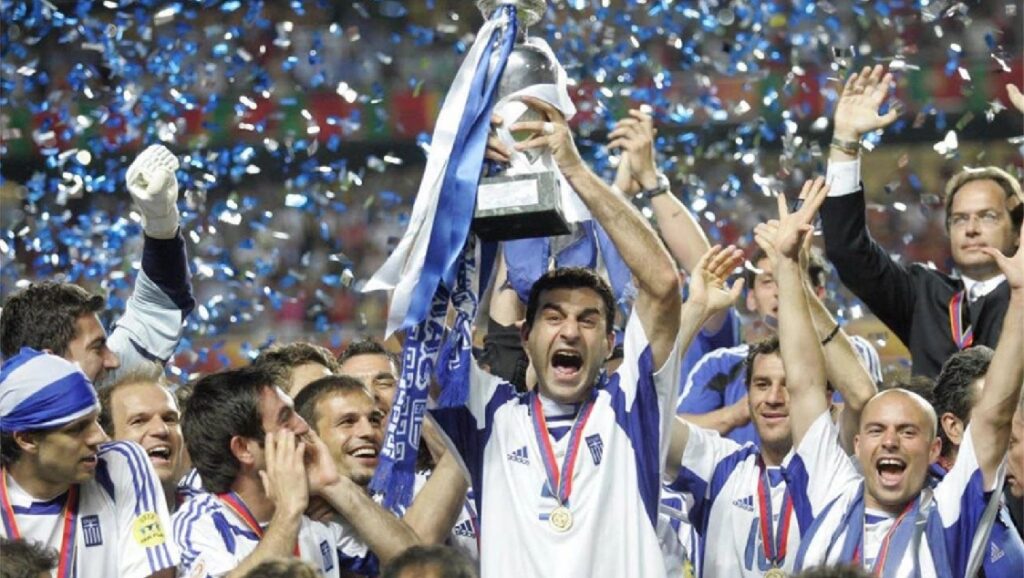Continental soccer tournaments are considered one of the highest levels of the game, and there’s no dispute that the quality of this year’s competition in Germany will be top-drawer. While other international tournaments, such as the World Cup, have a well-documented history and aura about them, the Euros can often fly under the radar.
Over the last 60 years, the tournament has undergone some pretty significant changes. Some countries that have won it no longer exist, and some tournaments only had eight teams competing! So yes, there’s a lot of history to explore with the Euros, and with the 17th instalment upon us, brushing up on some of the history and facts should get the anticipation flowing for what’s to come later this month.
There’s certainly less knowledge about the history of the tournament among the more casual soccer fans, and if you’re particularly looking forward to the action set to unfold in Germany this summer, we’ve put together a handy guide to equip you with some of the facts and stats from one of the most revered competitions in the international game.
Most successful teams
Spain, and this year’s hosts, Germany, are tied on three European championships each. The Germans will be keen to pip Spain and get to the top of this list. While all the attention seems to be on whether England can win their first-ever European Championship trophy, or if France and soccer megastar Kylian Mbappé can stop them in their tracks, Germany, as the host nation, is seemingly overlooked as a serious contender.
Of all the expert opinions, the www.wsn.com Euro 2024 predictions mention Germany as a possible winner – and rightly so. They are going into the tournament with a huge home backing and a track record in proving themselves at the highest level. They can call on the immense talent and experience of six-time Champions League winner Toni Kroos, measured against the precocious ability of some of the world’s finest soccer talent, such as Florian Wirtz.
The roots of the competition
Although many tournaments brought together national sides, some dating back to the 1800s, the 1960 Euros was the inaugural tournament. The Soviet Union emerged victorious, but notable absentees included Italy, the Netherlands and England. It wasn’t until the 1980 tournament that the format changed, encompassing eight teams and two groups of four.
This might sound like a short, quick-fire tournament compared to what we see today. Still, it’s important to remember that soccer had a totally different landscape back then – and the Euro Championship mirrored the appetite for it on television and the overall appeal of the international game. It’s fair to say that regardless of the sport in question, the global audience figures were much lower than they are today, especially when you combine many platforms such as social media and streaming services.
International soccer has always focused on the World Cup, although the internet has brought more people together to watch the game. There is, however, a growing demand for continental tournaments, such as the Euros or the Copa América, which also takes place this summer.
In the 1980s, television sets were few and far between, and the demand for international soccer revolved around the World Cup. The Euros competition did not carry the same sort of esteem it does now, so there was less organization, design structure and money for television rights.
Undeniably, one of the most astonishing moments in the tournament’s history was when Denmark won it in 1992, despite not initially qualifying and only ending up in the tournament due to Yugoslavia being sanctioned and kicked out at the last minute. And who can forget Greece winning Euro 2004 at odds of over 150/1? The Euros has played host to some of the most astonishing international soccer moments of all time.
Modern-day competition – Euro 96 onwards
It wasn’t until Euro 1996 that we started to see the tournament’s formation in the format we know today. England fans will have a strong memory of the tournament they hosted back then – it brought us Three Lions, the song that many fans still consider the best England soccer song. It was by far the most popular of the European Championships so far, boasting tens of millions in global TV audiences.
Some people put this down to the widespread growth of soccer as an entertainment commodity in the UK and Europe, and the higher number of people who own home television sets.
However, it also meant UEFA would begin taking the competition more seriously overall. Over the next few tournaments, the format morphed into a 16-team tournament and then into the modern-day format, which will see 24 teams battle it out in Germany this summer.
Conclusion
With 60 years of history and the 17th tournament soon to be under way, the Euros hold a crucial place in soccer history. It has been the showcase that brought Wayne Rooney onto the global soccer stage back in Euro 2004, and a tournament Greece won at odds of 150/1 – it and continues to act as the platform for the brightest talents on the continent to shine.

